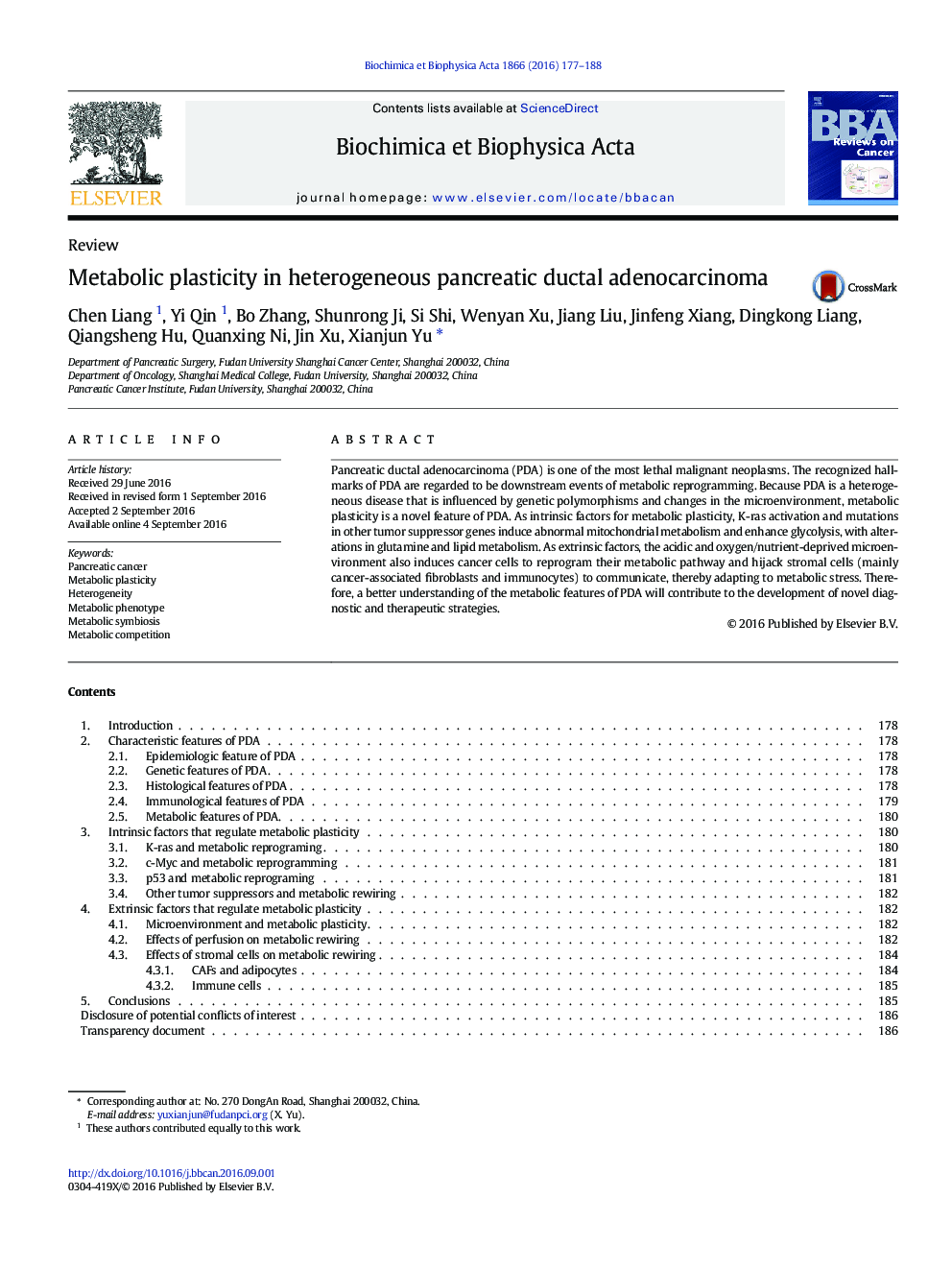| Article ID | Journal | Published Year | Pages | File Type |
|---|---|---|---|---|
| 6481809 | Biochimica et Biophysica Acta (BBA) - Reviews on Cancer | 2016 | 12 Pages |
Pancreatic ductal adenocarcinoma (PDA) is one of the most lethal malignant neoplasms. The recognized hallmarks of PDA are regarded to be downstream events of metabolic reprogramming. Because PDA is a heterogeneous disease that is influenced by genetic polymorphisms and changes in the microenvironment, metabolic plasticity is a novel feature of PDA. As intrinsic factors for metabolic plasticity, K-ras activation and mutations in other tumor suppressor genes induce abnormal mitochondrial metabolism and enhance glycolysis, with alterations in glutamine and lipid metabolism. As extrinsic factors, the acidic and oxygen/nutrient-deprived microenvironment also induces cancer cells to reprogram their metabolic pathway and hijack stromal cells (mainly cancer-associated fibroblasts and immunocytes) to communicate, thereby adapting to metabolic stress. Therefore, a better understanding of the metabolic features of PDA will contribute to the development of novel diagnostic and therapeutic strategies.
